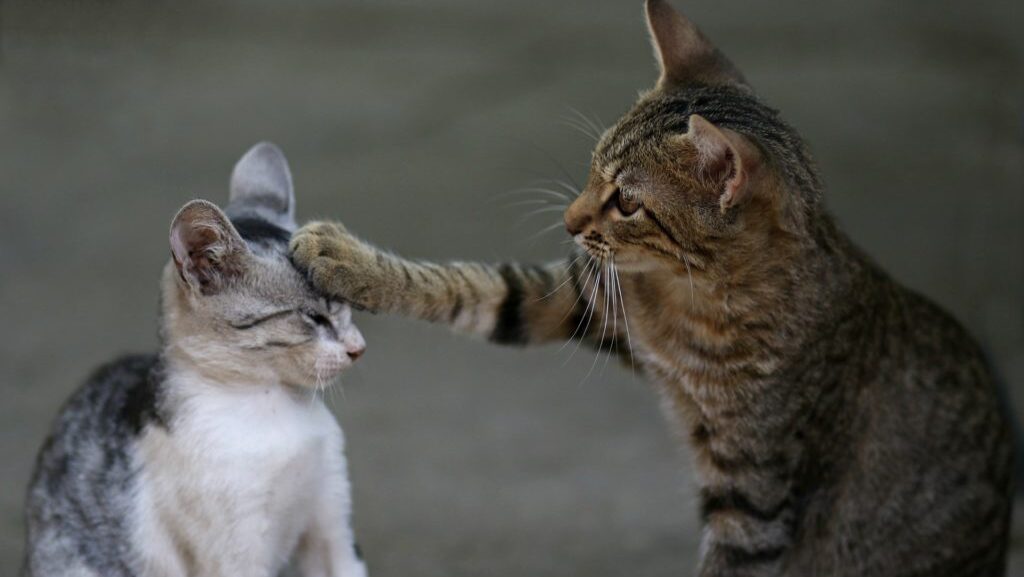The Myth of Objectivity
When people ask me what I do for a living, I typically respond that I practice psychotherapy. I often hear the response, “Oh, so you’re a shrink.” Notwithstanding that I’m a psychotherapist, and not in fact a psychiatrist (the more proper match for being a shrink), being called a shrink causes me to pull back and defend myself. I’d rather expand than shrink.
Although my comment might be seen as glib, it really speaks to my shifting worldview and my intention to practice a psychology that is in coherence with this shift – emergence as opposed to reduction.
Psychotherapy, for the large part, has been rooted in an old paradigm of reality, which values reductive thinking and objective analysis. From this perspective, based upon certainty and determinism, we believe that with sufficient information we can drill down to the root causes of an individual’s afflictions. So our focus is often on the cause, hence the reductive thinking and the term “shrink.”
Interested in bespoke marriage and relationship counseling from Mel Schwartz? Reach out!
Yet from this methodology, we sadly neglect how to get from here to there and what there looks like. Many people seem to have a reasonable understanding of why they have become who they are and what their struggles are. A continued replay of these life events – ad nauseam, without sufficient focus on emergence – leaves many people dissatisfied with their therapeutic experience. So many people who come to work with me share their hope that they won’t have to encounter once again the same retelling of their life experience.
Moreover, therapists tend to become steeped in the diagnostic penchant, which limits our capacity as healers and has us treat the diagnosis rather than co-creating new realities with our clients. This approach would provide a framework grounded in a humanistic venture of actualizing new possibilities. Let’s take a look at some of the core tenets of mainstream psychology and how they limit the healing potential of the profession.
Traditional Psychology + Diagnosis
Traditional psychology, still in lock step with our bio-medical approach, rests its foundation on diagnosis. In fact, health insurance requires a diagnosis for coverage. The operating assumption of diagnosis is that objectivity, in fact, exists. In order to diagnose someone, we must assume that our subjective interpretations aren’t getting in the way and that objectivity actually prevails. From this perspective we should assume that a dozen clinicians working with the same individual would all render the same diagnosis. I can assure you that no such thing would happen.
We each see through the subjective filter of our own life experience, colored by our beliefs, thoughts, personal history, prejudices, biases, and our unconscious stirrings. Therapists are not calculating automatons – thankfully – but simply educated professionals hopefully doing our best, although perhaps constrained by an outmoded model of thinking.
The root of the word objectivity is object. This is the basis of reality in Newton’s atomistic paradigm. The world is thus comprised of separate and discrete objects and objectivity becomes not only desired but amongst the highest of ideals. To be objective requires the capability to stand apart, unaffected by the other. We’ll soon discover that this is entirely implausible.
Webster’s third dictionary defines the word objective as follows:
Of or relating to an object, phenomenon or condition in the realm of sensible experience, independent of thought and perceptible by all observers. Having reality independent of the mind: expressing or dealing with facts and conditions as perceived without distortion by personal feelings, prejudices or interpretations.
This definition requires that the observer’s experience be sensible, independent of thought and perceptible by all observers. The notion of sensible is of course completely contextual and relative, and we need not delve too deeply into that; suffice it to say that the circumstances and a consensus of agreement determine sensibility, which is hardly objective, but mostly subjective.
As an aside if we consider the etymology of sensible, it likely limits the notion to that which our five senses can appreciate. Might this be somewhat limiting?
What is sensible in one set of circumstances might be insane in another. Indeed, the very wedding of the words sensible and objective is ludicrous.
The next parts of the lexicon are particularly curious. Independent of thought implies that in an independently objective state there resides a truth, which has nothing at all to do with thought. An interesting proposition indeed and rooted in the philosophy of positivism. Yet, how would we know of anything without thought? The absoluteness of perceptible by all observers leaves no room for exceptions. Therefore, if we now had one hundred or one thousand psychologists observing an individual they would all have to concur without exception. Good luck!
Now for the last part of the definition: Having reality independent of the mind: expressing or dealing with facts and conditions as perceived without distortion by personal feelings, prejudices or interpretations.
Again, we are confronted with a reality independent of the mind. As such, we detach from the constructs that mind creates. In our profession all diagnoses are constructs, creations of mind. Does borderline personality disorder or attention deficit disorder exist without mind? Mind created them. We then label people as such and lose sight of the fact that mind invented the terms. The noted philosopher Alfred North Whitehead referred to this dilemma as the fallacy of misplaced concreteness. Thought constructs and then denies its creation, conferring upon it an independent reality. We might correctly say, “Jane appears to have behavior consistent with what we call borderline personality disorder.” That is far different from, “Jane is a borderline.” When we observe from the former perspective, we lose both our intuitive and humanistic skills as therapists. The person becomes the diagnosis.
I am in no way suggesting that the behaviors that describe these conditions don’t exist; they most certainly do. So creating the term or the diagnosis in order to facilitate a description is most useful. But conferring upon the diagnosis (a few descriptive words) an actual thing-ness or reality is altogether a different matter. So the very nature of objectivity, requiring reality independent of mind becomes perhaps untenable. Could we imagine circumstances in which attention deficit disorder might be regarded as functional and highly desired? Of course we could, and under those conditions what we see as pathology might actually be functional.
Expressing or dealing with facts and conditions as perceived without distortion by personal feelings, prejudices or interpretations really seals the deal. As humans, we are feeling, interpretative individuals. This is an essential part of our humanness. Should we not be repulsed by certain acts and comforted by others? To perceive without feelings might be very dysfunctional. Were the judges at the Nuremberg trial objective, suggesting that they had no feelings or prejudices? If so they may have indeed been objective, but not quite human. The goal of dealing with circumstances devoid of our evocative feelings and interpretations might indeed, of itself, qualify us as a sociopath.
A number of years ago, I was a prospective juror on an alleged rape case. Not surprisingly I found myself in judge’s chambers explaining that as a therapist I have often worked with individuals who have suffered from sexual abuse. The prosecuting attorney asked if I could nevertheless be objective. I mischievously broke into some pontification on the subject. I concluded my interlocution by suggesting that a more appropriate question to inquire of jurors might be, “Can you be in touch with your biases and still feel that you can be reasonably fair?” In case you’re wondering what happened, I was dismissed and directed to serve on another jury.





Mel,
Nicely conceived and articulated article. You obviously have a great deal of professional experience and insight. No matter how evidence-based we may think our therapy is, the process remains an “art.” As I always say, hopefully we take our clinical hat off at the door before we meet our patients. We do the best we can, with all our limitations and biases. Sometimes we check out value judgments against our clients’ perception, to see what makes sense for them. We hopefully come across as authentic individuals who do not have all the answers. We explain that therapy is not a linear process that takes us directly from point A to B. Objectivity, in my opinion, is for those who are blinded by some aspects of their own experience and choose to deny it. After all, what do we know for sure anyway? Be well, james
Yes, James your last line says it so well! Thanks for your insights, as therapy should be art not science.
Wow! Thank you Mel. Finally someone expresses the point about diagnoses which I have always wondered – does it even at the end of the day matter? Because when I meet a client my goal is not to put him in the DSM box but to help him bring to awareness areas in him/herself as well as work on issues that he is striving to understand/resolve; to strive towards greater ‘self-actualization’ whatever that means to him/her..
As a therapist with a transpersonal bent, am I not in a way sided towards another aspect of humanity and that is bit different from the traditional psychology models? So in a way depending on one’s training specialization, we are each further influenced by THAT approach, aren’t we?
Sometimes I think the dependency on diagnosing a client actually takes away from a ‘healthier’ attitude towards therapy and healing. So, as you put it Mel “We each see through the subjective filter of our own life experience, colored by our beliefs, thoughts, personal history, prejudices, biases, and our unconscious stirrings.” So where is the OBJECTIVENESS in that 🙂
One of the most precious things I learnt during my training years was to see the client as a MYSTERY and let the therapy session unfold in a space of sacredness and wonder!
Yes Khursheed, we are all influenced by our beliefs and training. In fact, I’d offer that belief is bias..So given that we all have beliefs, we are all indeed biased!
I aim at a disciplined subjectivity.
That sounds great, but can you share what you mean by disciplined John?
Hi Mel:
Great article. Thanks.
I don’t know how to work with clients and not be somewhat subjective. I trust my body’s response to material that is being presented, and use it as a barometer to gauge what is going on with my client, and mirror back to validate and ensure that I am on the same page.
I find that getting clients grounded, out of their heads and into their bodies is the most direct way to accessing what is true. The body doesn’t lie.
Interesting technique Wendy. For me the mind and body are in no way separate but are simply differing aspects of our being..
What a wonderful discussion. Thank you for initiating it Mel. I got so exited to read your ideas and everyone who responded to it with their own experiences, because it confirmed that as psychotherapists, we are evolving our collective consciousness and awareness beyond what our ‘scientific’ training initially suggested. Because of our subjective experiences and participation with our own and our clients ails, we are learning to accept how complex and creative subjective experience actually is. Subjective experience is a kind of ‘in the moment’ and personal ‘objectivity’, instead of an absolute objectivity. Science only measures what it is capable of conceiving subjectively within a certain time frame anyway, which are actually then subjective measurements.
I do however have a subjective notion, like Greg, that somehow there is an objective truth beyond the personal which lie on a collective spiritual level that is unfolding as we become more conscious of how our spiritual essence connects with our human nature. This objective truth is far more complex than we can ever imagine at this moment in our evolution. I believe we are still so busy experiencing our human nature that we get caught up in its ways and are blinded about the ‘objective’, even though we really want to believe that we are objective. As long as we think we are objective we stay subjective and as soon as we are willing to experience subjectivity we might have access to objectivity.
Our intentions to be ‘good’ people or even ‘conscious’ people as best we can, is not up to our willfulness, really, but only up to our willingness to humbly continue to observe our blind spots and aspect human nature, until we discover where our spiritual nature connects with this human nature. Our awareness and courage helps us to take action by our choices, which promote healing instead of pain because of the old ideas about our human selves that holds us in the pain patterns.
Healing is such an interesting, mystical and adventurous journey where I always discover the unexpected.
Lovely thought provoking discussion,
Thanks,
Jayni Bloch
Hi Jayni,
I’m gratified that this discussion stimulated you, please stay tuned in for my upcoming posts and you might want to read about my Emergent Thinking approach or have a look at my DVD The Power of Mind…